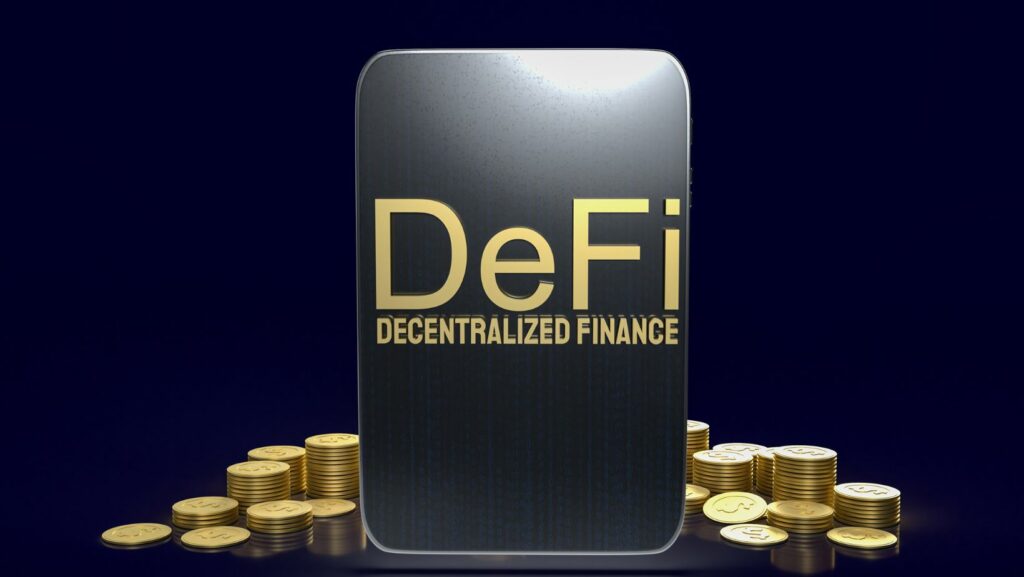
Uniswap, powered by blockchain technology, has emerged as a key player in the rapidly growing decentralized finance (DeFi) ecosystem. DeFi refers to using blockchain and cryptocurrencies to recreate traditional financial systems in a decentralized manner. Uniswap, with its innovative approach to liquidity provision and decentralized exchange, has played a pivotal role in transforming the DeFi landscape. In this article, we will explore the significance of Bitcoin Era, which is an Online trading platform Uniswap’s role in the DeFi ecosystem, particularly focusing on its interoperability and composability. Looking for a safe cryptocurrency trading platform to invest in Bitcoin? Then, have a look at bitcoin buyer.
Understanding Uniswap
Uniswap is a decentralized exchange protocol built on the Ethereum blockchain, providing users with a direct and secure method to trade ERC-20 tokens. Unlike traditional exchanges, Uniswap eliminates the need for intermediaries, allowing users to trade tokens directly from their wallets. What sets Uniswap apart is its innovative automated market maker (AMM) model, which replaces traditional order books. Liquidity on Uniswap is provided by users who contribute to liquidity pools, and trades are executed based on predetermined mathematical formulas. This model ensures transparency, efficiency, and decentralization in the trading process.
With Uniswap, users can engage in peer-to-peer token swaps without relying on centralized exchanges or third parties. By utilizing smart contracts, Uniswap removes trust barriers and reduces the risk of security breaches or counterparty failures. Additionally, Uniswap incorporates decentralized governance, enabling token holders to actively participate in decision-making and contribute to the platform’s development. Uniswap has revolutionized the world of decentralized finance (DeFi) by offering a seamless and secure trading experience while promoting decentralization and user empowerment.
Interoperability: Connecting the DeFi Dots
One of the key strengths of Uniswap lies in its interoperability. Interoperability refers to the ability of different blockchain-based systems to communicate and interact seamlessly with each other. Uniswap acts as a bridge, connecting various DeFi projects, tokens, and protocols within the Ethereum ecosystem. This interoperability enables users to access a wide range of decentralized financial services and trade different tokens directly on Uniswap.
By leveraging smart contracts and the Ethereum Virtual Machine (EVM), Uniswap facilitates interoperability across various DeFi applications. For instance, users can seamlessly swap tokens from lending platforms, yield farming protocols, decentralized exchanges, and other DeFi services using Uniswap. This interconnectedness fosters a vibrant and dynamic ecosystem where users can easily navigate and utilize different DeFi solutions.
Composability: Building Blocks of DeFi
Composability refers to the ability of different DeFi protocols to be combined or “composed” together to create new and innovative financial products. Uniswap plays a crucial role in enabling composability within the DeFi ecosystem. Since Uniswap is an open protocol, developers can integrate it into their own applications, thus creating new possibilities for decentralized finance.
Developers can build on top of Uniswap’s smart contract infrastructure and leverage its liquidity pools to create novel financial products and services. For example, developers can integrate Uniswap into lending platforms, decentralized derivatives exchanges, or even prediction markets. This composability allows for the rapid iteration and evolution of DeFi, fostering innovation and driving the growth of the ecosystem.
Uniswap’s Impact on DeFi
Uniswap’s role in the DeFi ecosystem cannot be overstated. Its innovative approach to decentralized exchange and liquidity provision has revolutionized the way users trade and access financial services. The interoperability offered by Uniswap connects various DeFi projects, enabling users to seamlessly navigate between different applications and protocols. Moreover, the composability of Uniswap empowers developers to create new and innovative financial products, driving the evolution of DeFi.
The success of Uniswap has attracted a significant user base and propelled its trading volume to new heights. As more users and projects join the DeFi ecosystem, Uniswap continues to play a vital role in providing liquidity and facilitating seamless token swaps. Its decentralized nature ensures that users have control over their funds and eliminates the need for intermediaries, thus enhancing the security and trustworthiness of the ecosystem.
Conclusion
Uniswap’s emergence as a leading decentralized exchange protocol has had a profound impact on the DeFi ecosystem. Its interoperability and composability have connected different DeFi projects and enabled the creation of innovative financial products. Uniswap’s success has not only transformed the way users trade and access financial services but has also paved the way for the further growth and development of decentralized finance. As the DeFi ecosystem continues to evolve, Uniswap’s role as a catalyst for interoperability and composability is expected to become even more crucial. With its user-friendly interface, secure infrastructure, and commitment to decentralization, Uniswap is well-positioned to remain at the forefront of the DeFi revolution.








